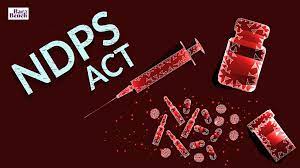
Section 57 of Ndps Act . Report of arrest and seizure.Whenever any person makes any arrest or seizure, under this Act, he shall, within forty-eight hours next after such arrest or seizure, make a full report of all the particulars of such arrest or seizure to his immediate official superior.
The Supreme Court has reiterated that merely because the report contemplated under Section 57 of the Narcotic Drugs and Psychotropic Substances Act was not sent within two days of arrest of the accused, the entire proceedings will not be vitiated.
Section 57 of the NDPS Act provides that whenever a person makes any arrest or seizure, he shall, within forty-eight hours next after such arrest or seizure, make a full report of all the particulars of such arrest or seizure to his immediate official superior.
In this case, the counsel for the accused contended that there is a violation of Section 57 of the NDPS Act, since the report was not sent to the Higher Official within the period as prescribed, which has vitiated the entire proceeding.
Rejecting this submission, the bench comprising of Justices Ashok Bhushan and Navin Sinha referred to the judgment in Sajan Abraham vs. State of Kerala, wherein it was held held that non-compliance of Section 57 would not vitiate the prosecution case. It said:
In so far as submissions on the basis of Section 57 of NDPS Act is concerned, it has been held that the said provision is not to be interpreted to mean that in event the report is not sent within two days, the entire proceeding shall be vitiated. The provision has been held to be directory and to be complied with but mere not sending the report within the said period cannot have such consequence as to vitiate the entire proceeding.
In Sajan Abraham, it was held that Section 57 is not mandatory in nature and when substantial compliance has been made it would not vitiate the prosecution case.

